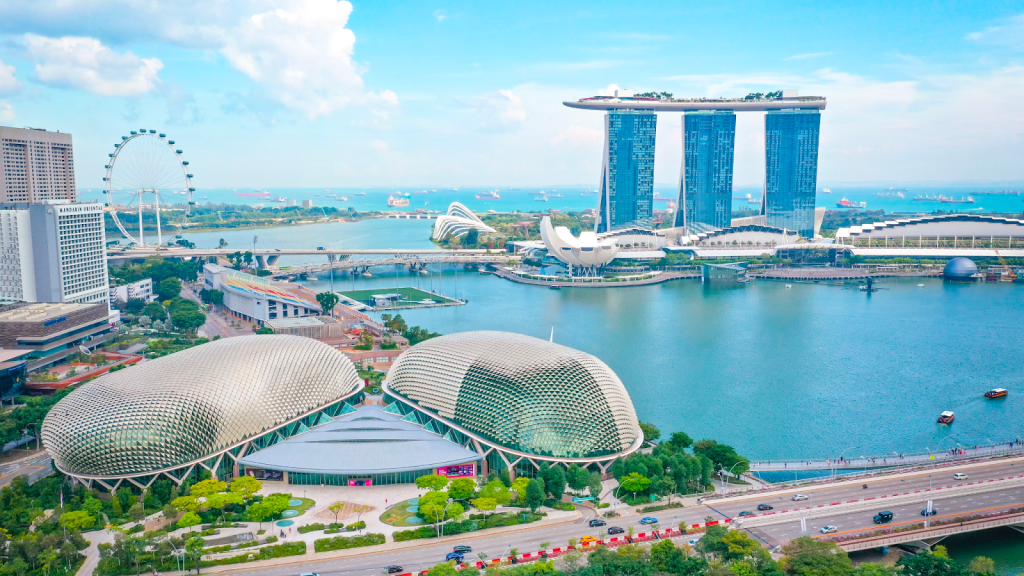
In the age of digital innovation, urban travel has transformed remarkably, giving rise to the concept of ‘Smart Cities.’ These cities leverage cutting-edge technology to enhance the quality of life, sustainability, and visitor experiences. From AI-powered public transport to app-based city guides, integrating technology in urban landscapes redefines how we explore and interact with cities. This article delves into various towns around the globe, showcasing how technology is not just simplifying travel but also making it more immersive and personalised.
Singapore’s Smart Nation Vision
Singapore, often called a ‘Smart Nation,’ is a testament to how technology can transform urban environments. This city-state has embraced digital innovation to improve living standards and tourism experiences. Key initiatives include sensor-enabled traffic systems reducing congestion and mobile apps that efficiently guide tourists through the city’s attractions. Environmental sustainability is central to Singapore’s vision, with intelligent water management and energy-efficient buildings. Ensuring your travel documents are up-to-date is vital for travellers visiting from the United Kingdom. iVisa.com suggests making sure that all your travel documents are ready and up-to-date. That sorted, you can see the city’s commitment to technology extends to visitor experiences, with virtual reality tours and interactive cultural exhibits offering a glimpse into the future of urban travel.
Seamless Travel in London: A Tech-Driven Approach
London, known for its blend of historic charm and modern innovation, is at the forefront of the innovative city movement. In London, technology has revolutionised public transportation. Contactless payments, real-time travel updates, and route optimisation apps have made navigating the city’s extensive transport network effortless. Introducing electric buses and bike-sharing programs highlights the city’s commitment to sustainable travel. Beyond transport, London’s intelligent street initiatives, including interactive digital kiosks and free city-wide Wi-Fi, enhance the urban exploration experience, making it a pioneer in modern urban travel.
Barcelona’s Integration of IoT
Barcelona has emerged as a leader in integrating the Internet of Things (IoT) into urban infrastructure, enhancing resident and visitor experiences. The city’s innovative lighting systems conserve energy and improve safety for night-time explorers. Public Wi-Fi, smart parking solutions, and IoT-enabled waste management reflect Barcelona’s commitment to a tech-savvy and sustainable urban environment. The city also offers digital museum experiences and augmented reality walking tours, blending its rich cultural heritage with modern technology providing a unique and informative perspective of its history and art.
Dubai’s Leap into the Future
Dubai, known for its luxurious lifestyle and architectural wonders, is also making strides in becoming a leading smart city. Its vision includes blockchain technology for secure and seamless tourist transactions and AI-driven services to enhance visitor interactions and experiences. Dubai’s smart mobility solutions, like autonomous vehicles and advanced public transport systems, are reshaping how tourists travel within the city. Implementing digital tools in hospitality and tourism, from AI chatbots in hotels to virtual reality experiences in malls, is revolutionising the travel and leisure industry, making Dubai a hotspot for tech enthusiasts.
Tokyo’s Tech-Infused 2020 Olympics Legacy
Having hosted the 2020 Olympics, Tokyo leveraged this global event to showcase its technological prowess. The city introduced multilingual translation devices, facial recognition systems for security, and intelligent stadium technologies, enhancing the visitor experience. Post-Olympics, these technologies remain part of Tokyo’s urban landscape, benefiting tourists and locals alike. The city’s efficient public transportation, bolstered by digital ticketing and navigation systems, sets a high standard for urban mobility. Tokyo’s blend of technology and tradition, from robot-assisted services in hotels to digitalised historical tours, offers a futuristic yet culturally rich travel experience.
Helsinki’s Pioneering Approach to Smart Urban Living
Helsinki, Finland, stands out as a model for smart urban living, seamlessly integrating technology into everyday life to enhance the experiences of both residents and visitors. The city is renowned for its open data policy, which allows developers to create apps that make navigation, dining, and entertainment more accessible and tailored to individual preferences. Helsinki’s commitment to sustainability is evident in its efficient public transportation system, where digital real-time tracking reduces waiting times and improves travel efficiency. For tourists, Helsinki offers digital guides and virtual reality experiences that showcase its history and culture, providing an immersive way to discover the city.
The tour of these smart cities highlights the transformative impact of technology on urban travel experiences. In these cities, technology is not just a tool but a catalyst for sustainable, efficient, and enjoyable travel. The convergence of digital innovation with urban development has opened up new possibilities for travellers, offering seamless navigation, enhanced safety, and enriching cultural experiences. As technology continues to evolve, the future of urban travel seems poised for even more significant advancements, promising smarter, greener, and more personalised journeys. These smart cities are not just destinations; they are the harbingers of a new era in travel, where technology and human experiences merge to create journeys unlike any other.




